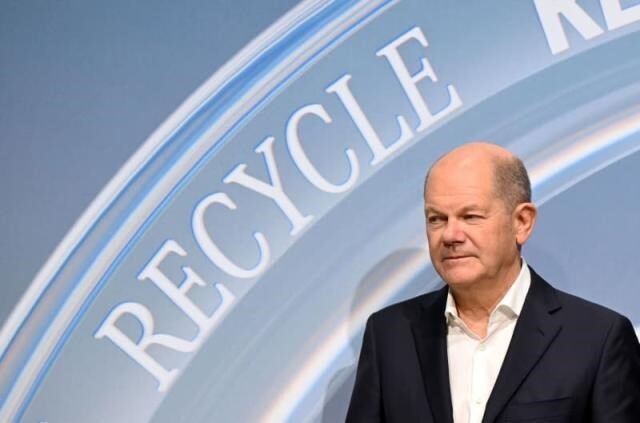您想继续阅读英文文章还
是切换到中文?
是切换到中文?

THINK ALUMINIUM THINK AL CIRCLE

In a bold statement at the inauguration of Mercedes-Benz's first battery recycling plant, Chancellor Olaf Scholz urged German automakers not to fear competition from China. Speaking on Monday, Scholz framed the investment as a key pillar of Germany's new industrial policy, aimed at strengthening the country's position in the rapidly evolving global auto industry.

Scholz highlighted the importance of innovation and sustainability in ensuring Germany's competitive edge, stressing that initiatives like the new plant will help the nation remain a leader in the electric vehicle sector. The recycling facility, a major move in advancing Germany's green industrial transformation, reflects the country's commitment to cutting-edge technologies and eco-friendly solutions.
"Some say that China can do much better with electric motors than us," Scholz said.
"German companies need not be afraid of this competition," he said, stating that the industry had previously faced strong competition from South Korea and Japan and reaffirming Germany's opposition to the European Union's tariffs on Chinese electric vehicles (EVs).
During the opening ceremony in Kuppenheim, southwestern Germany, Scholz said, "I'm against tariffs that harm us."
He emphasised that the EU should implement measures specifically where dumping and subsidies place European producers at a genuine disadvantage, such as in the steel industry.
The European automotive sector is currently grappling with several challenges, including high production costs, the transition to electric vehicles, declining demand, and increasing competition. As a result, some European car manufacturers have been forced to scale back production, with leading automaker Volkswagen even considering plant closures in Germany for the first time.
In the third quarter, Mercedes experienced a 13 per cent decline in sales in China, a key market where the company generates about a third of its overall sales. This drop was primarily driven by reduced demand for luxury vehicles, particularly the S-Class, due to China's ongoing real estate crisis.
Meanwhile, the European Union has introduced significant tariffs on Chinese-made electric vehicles (EVs), claiming they unfairly benefit from state subsidies. Beijing has rejected these claims and warned of potential retaliatory measures. German automakers, who earn roughly a third of their profits in China, have expressed concern and are advocating for further negotiations to resolve the issue. Germany cast its vote opposing the tariffs.
Responses








